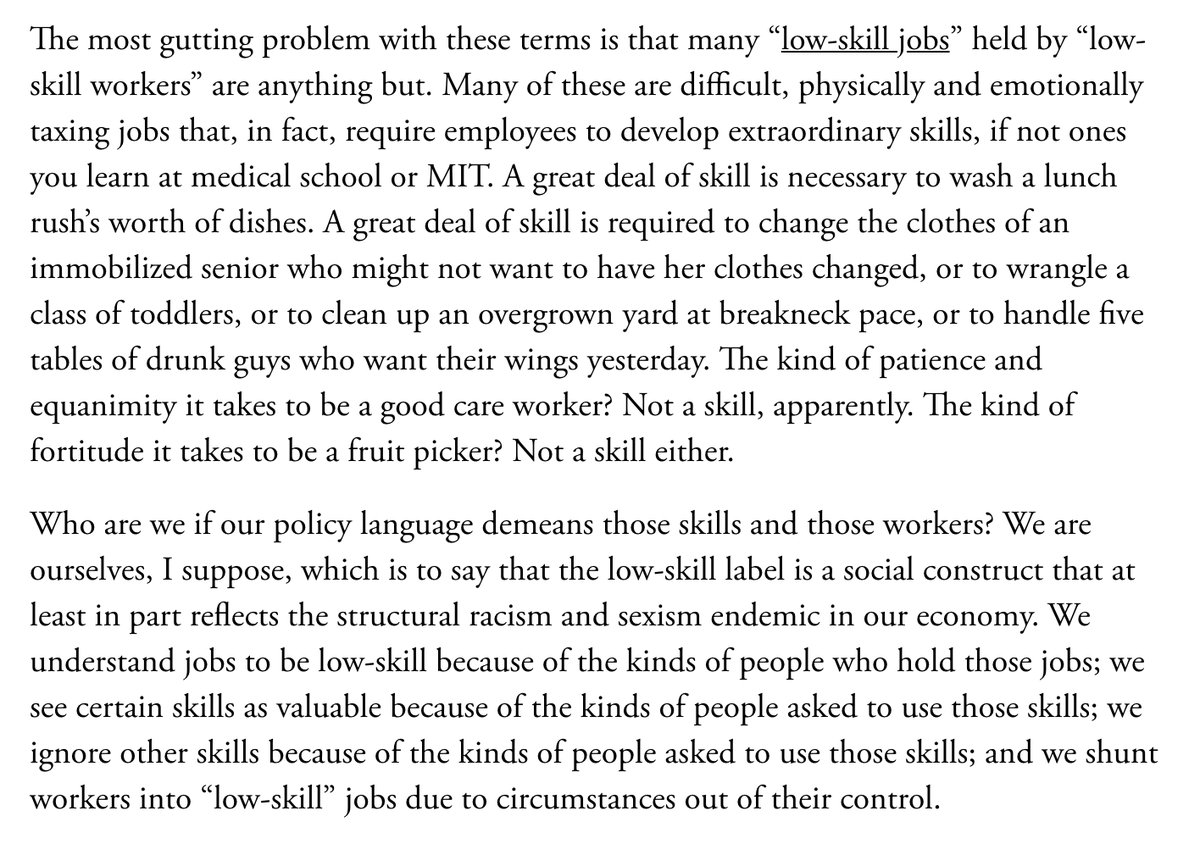
The key part of this conversation with Chuck Schumer, to me, is the way his thinking on the median voter has changed. nytimes.com/2021/04/30/opi…
He used to think they were skeptical of big government, resentful that they paid taxes and it helped everyone but them.
That pushed Democrats to target programs tightly, and keep price tags down. Clinton era reflects this.
That pushed Democrats to target programs tightly, and keep price tags down. Clinton era reflects this.
Now he thinks these voters, "Joe and Eileen Bailey," just want government to help them, and they don't care who else it helps. And so the political path for Democrats is to do anything and everything so these voters feeling helped by the government, right now.
That's aligned with the Biden administration's thinking in a lot of respects, but as Schumer explains to me, there's one big place they differ right now: He thinks it's an obvious, no-brainer idea for Biden to cancel student debt up to $50,000. The Biden admin doesn't.
• • •
Missing some Tweet in this thread? You can try to
force a refresh




